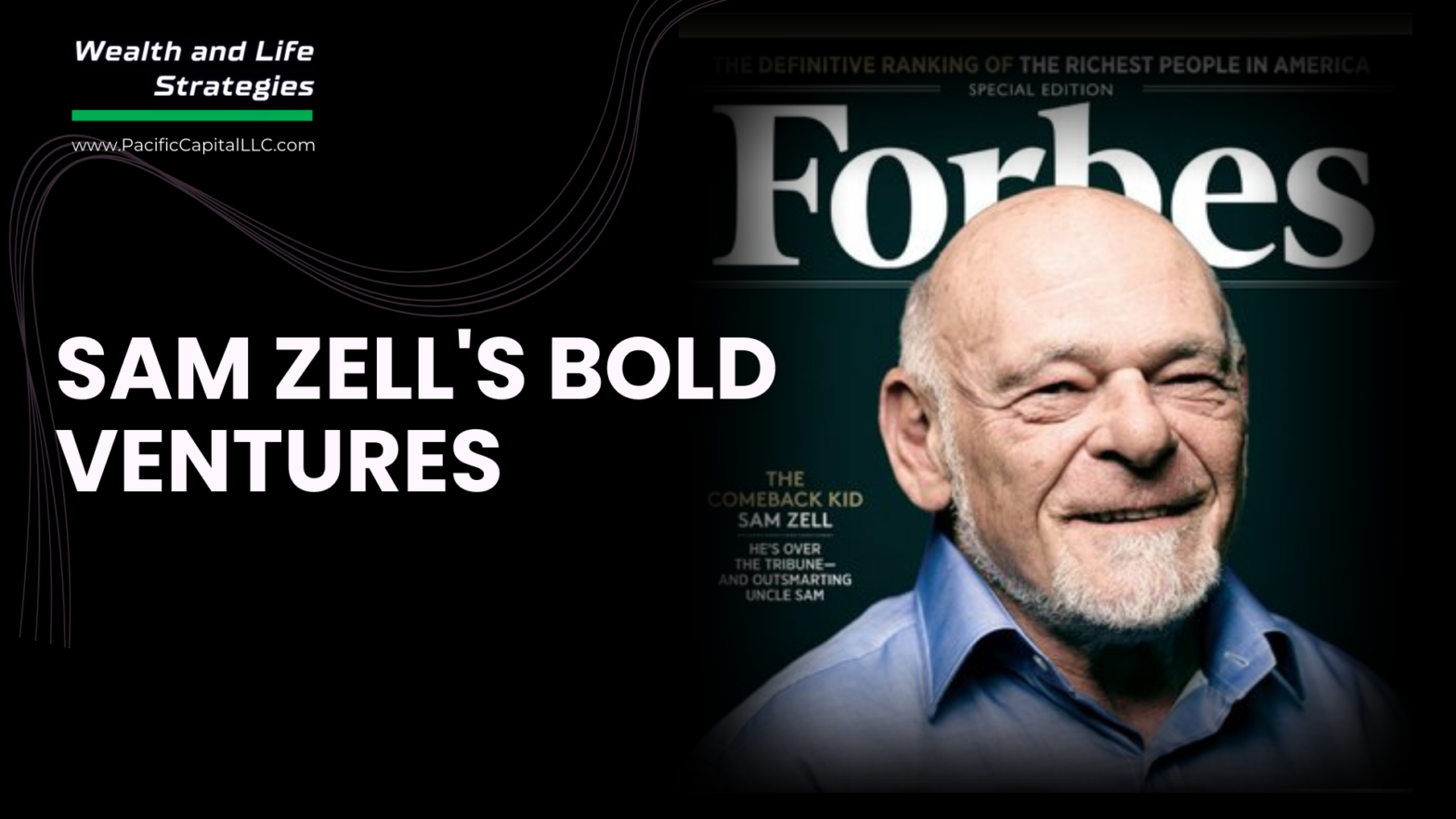
investing philosophy
Sam Zell's Bold Ventures in Real Estate: Dancing on Graves
If you’re into real estate investing, Sam Zell was a true legend. They called him “The Grave Dancer” because he had a knack for making big profits from overlooked properties. His journey from managing student apartments to becoming a billionaire shows what’s possible with hard work and guts.
"I grew up believing that anything is possible. When you're not aware of limitations, nothing stops you from trying."
Sam Zell didn’t come from wealth. Born to Rochelle and Rolf Zell, Jewish immigrants from Poland, his upbringing in a modest Chicago household instilled in him the values of hard work and resilience. Observing his parents’ dedication, he learned early on that with determination, anything is possible. Zell recalled, “I grew up believing that anything is possible. When you’re not aware of limitations, nothing stops you from trying.
"The time to buy is when there's blood in the streets."
The Contrarian Investor Zell’s real estate empire began in the late 1960s when he and his partner, Robert Lurie, started buying distressed properties. This was a period when many were fleeing from real estate investments due to economic uncertainties. However, Zell saw opportunities where others saw risks, a vision that set the stage for his future successes. His contrarian investing nature resonates with the philosophies of other legendary investors like Warren Buffett. Embodying his contrarian philosophy, Zell famously advised, “The time to buy is when there’s blood in the streets.
Zell was called the Grave Dancer, a moniker taken from an article he wrote about resurrecting dead properties. He always warned about the risks involved, stating, “As you’re dancing around the graves, you have to be really careful you don’t fall in.” He knew the risk.
As an investor, I understand the risks involved in investing in distressed properties. There’s a lot that could go wrong. It takes courage to enter this market because the outcomes can swing dramatically—you either make significant gains or face substantial losses.
Zell’s strategy wasn’t revolutionary but a blend of hard work and careful risk-reward analysis. Recognizing the potential in distressed properties, he concentrated on enhancing their operational efficiency. This included substantial renovations, improved property management, and strategic market repositioning. By making the properties more attractive and functional, he boosted occupancy rates, raised rents, and significantly increased their value. It’s impressive how he consistently executed this approach to success. Hats off to the man!
"I made a mistake. I was too optimistic about the newspaper industry and the economy."
Despite being a phenomenal investor, Sam Zell was still human and made mistakes. One of his regrettable ventures was when he acquired control of Tribune Media in a leveraged buyout valued at $8.2 billion. Tribune Media-owned several major newspapers, including the Chicago Tribune, The Baltimore Sun, Newsday, and The Hartford Courant, as well as the Chicago Cubs baseball team and Wrigley Field. Zell invested only $315 million of his own money, financing the majority of the purchase through borrowed funds.
Despite this setback, Zell’s overall financial position and diverse investment portfolio allowed him to weather the storm. He continued to pursue other ventures and investments, demonstrating resilience in the face of adversity.
"I've always believed that diversification is your friend"
Zell’s approach to investing was diversified and strategic. His portfolio encompassed various types of real estate assets, including distressed properties, residential and commercial buildings, and industrial properties. This diversification was crucial as it spread risk across different sectors and provided multiple sources of income.
In addition to real estate, Zell also ventured into energy investments. He recognized the significance of energy in his overall investment strategy and believed in its long-term potential. Zell saw energy investments as complementary to his real estate holdings, enhancing portfolio resilience and profitability.
Zell famously emphasized the importance of diversification, stating, “I’ve always believed that diversification is your friend, and I’ve consistently sought to diversify into energy and other sectors.” This balanced approach allowed him to navigate economic cycles and capitalize on opportunities across different markets.
"We made a deal that was significantly higher than the next best offer, making it an easy decision for me, despite it being my baby that I started from scratch."
Zell demonstrated his ability to recognize the optimal moment to exit investments. In 2007, he sold Equity Office Properties to Blackstone Group for $39 billion, marking it as the largest leveraged buyout at that time. Reflecting on this pivotal sale, Zell stated, “We made a deal that was significantly higher than the next best offer, making it an easy decision for me, despite it being my baby that I started from scratch.” As an investor, knowing when to exit is crucial for maximizing returns and managing risk effectively.
"Retirement from what? I don't understand that, because I've never worked in my life. I've just done stuff that turns me on."
In his book, “Am I Being Too Subtle?” Sam Zell described his daily routine: “At seventy-five, I wake up every morning at 4:45, start work by 6:30 a.m., and don’t finish until 7:00 p.m.” Despite having enough money to relax on a beach, he stayed busy because he loved what he did. Zell believed in doing things that are enjoyable and worthwhile. He turned his hobbies into successful ventures, showing that work can be both fun and profitable. His life teaches us that finding joy in our work and staying committed can lead to great achievements.
On May 18, 2023, Sam Zell passed away. He will be remembered as the bold “Grave Dancer” who fearlessly navigated risks and achieved remarkable success through his unconventional thinking and relentless determination. Zell, who founded Equity Group Investments and Equity Office Properties Trust, left an indelible mark on the business world with his ventures.
Until the end, he remained anything but subtle. Bold and colorful, he left a lasting impression with his daring approach to business and life.
His journey exemplifies that with a clear vision, diversification, and intelligent decision-making, substantial wealth can be built from even the most challenging beginnings.
